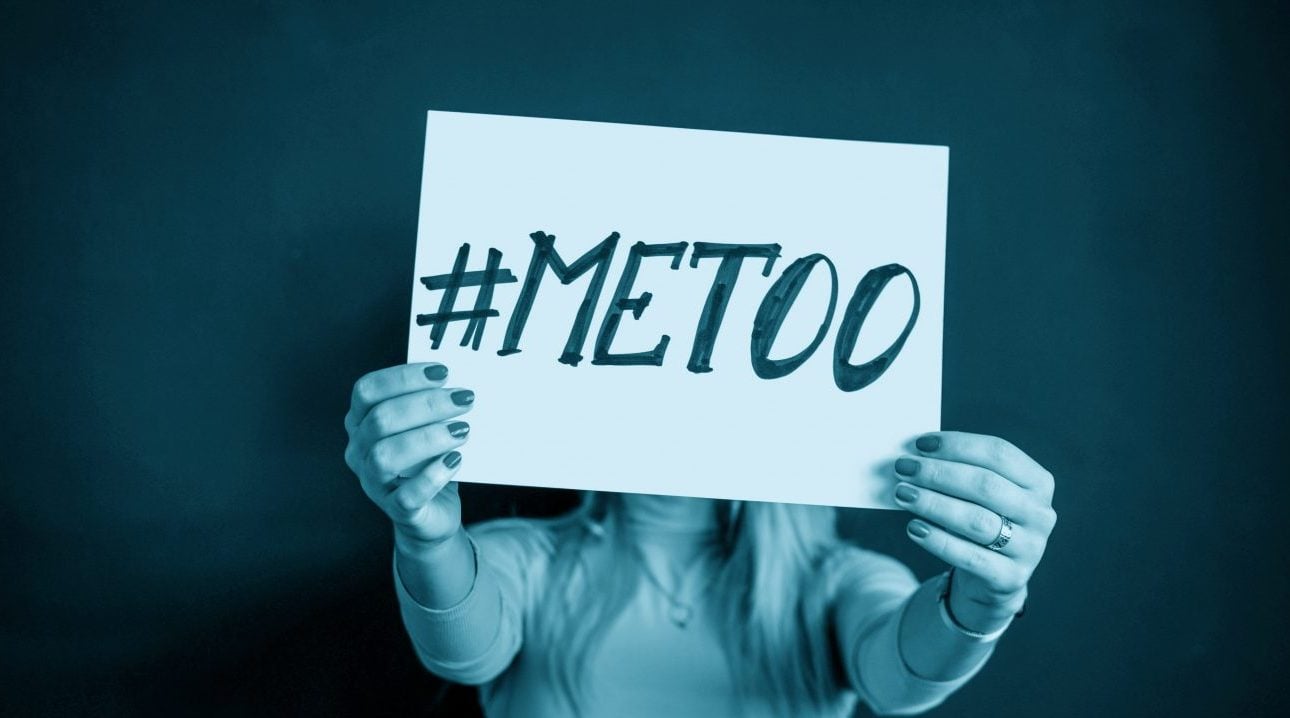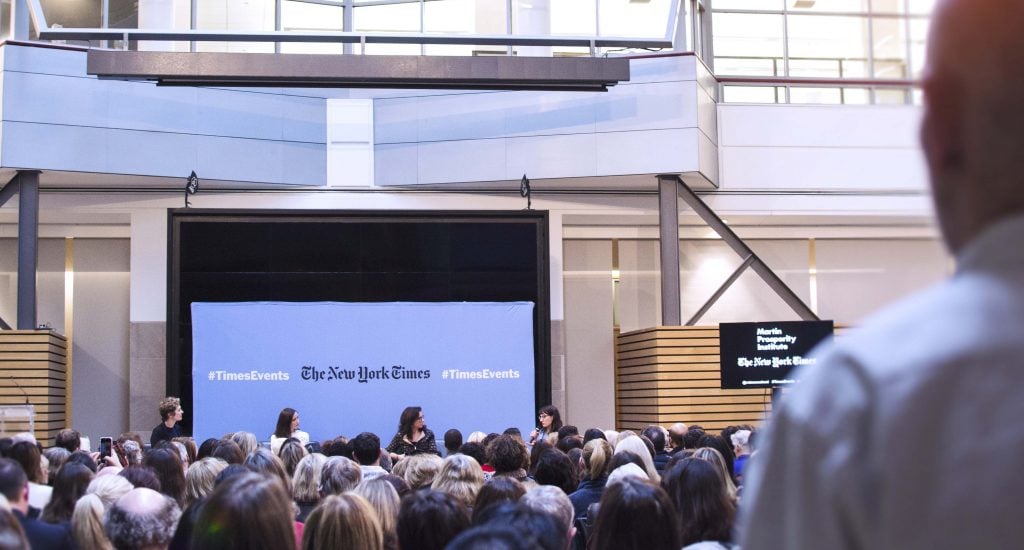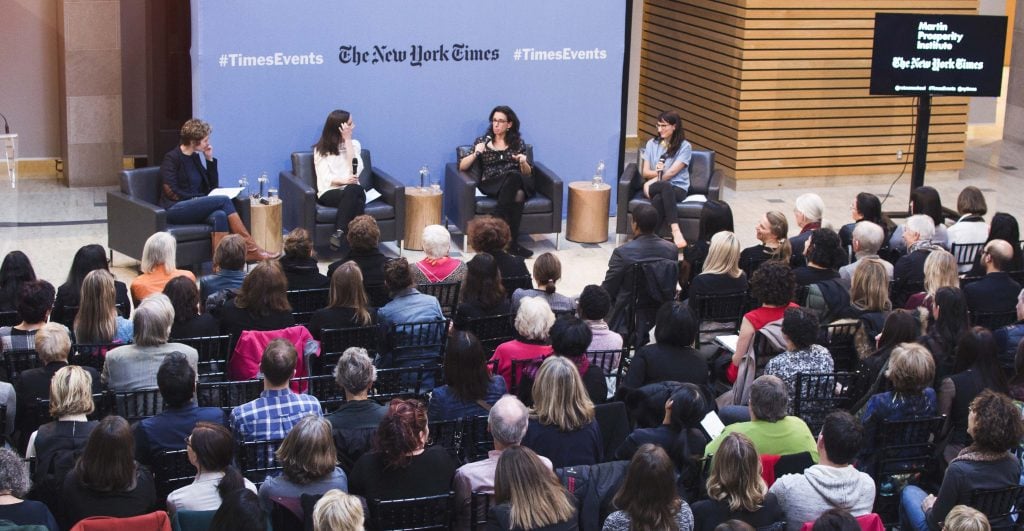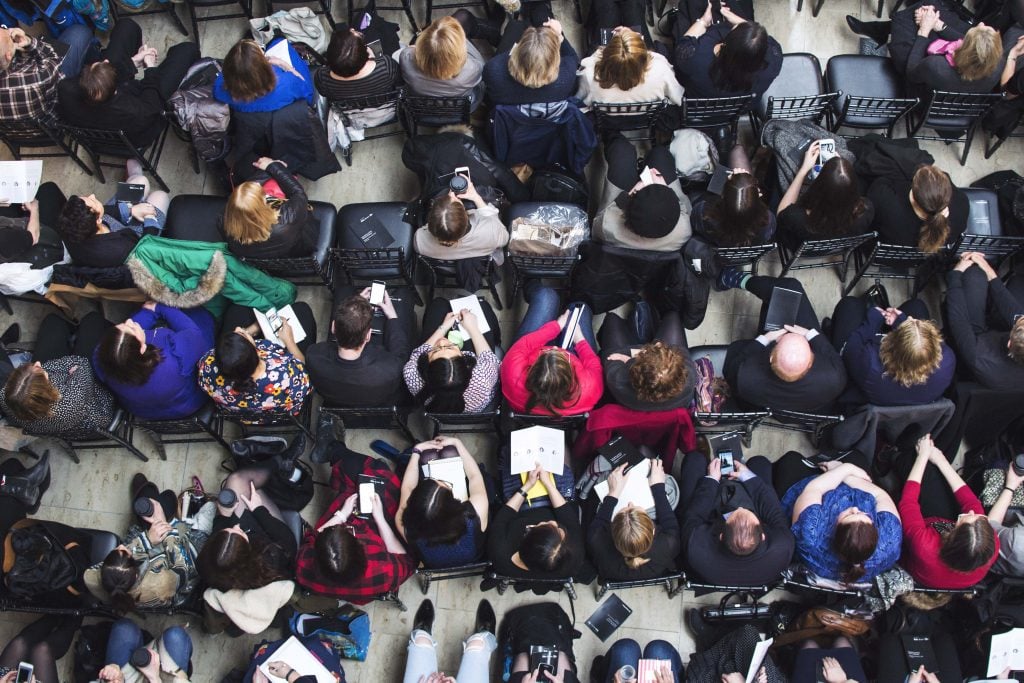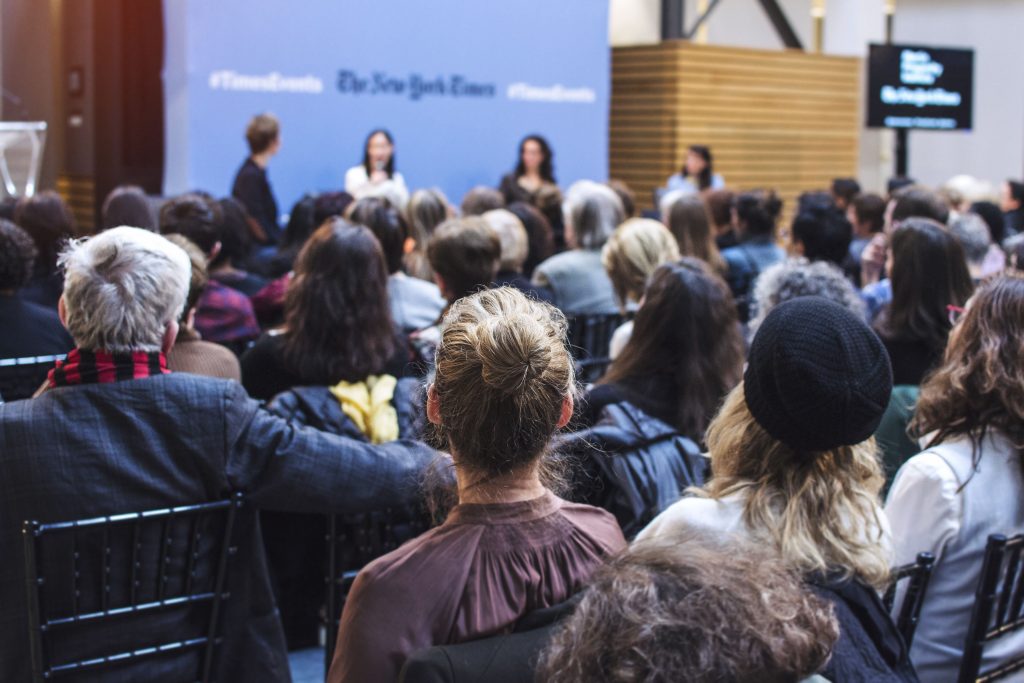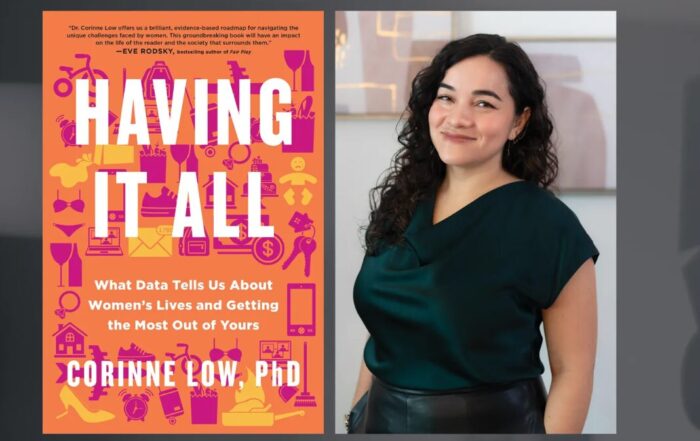“Confronting the powerful is why we get up in the morning.”
Jodi Kantor is not one to hide from a challenge or a threat. Especially if it serves a story she is chasing. At the “Journalism and the #Metoo Moment” event hosted by GATE, The New York Times (NYT), and The Martin Prosperity Institute, Kantor described her experiences (alongside NYT’s Emily Steel and Jessica Bennett) working for months to expose the sexual harassment scandals of Bill O’Reilly and Harvey Weinstein. The latter of which exploded into a viral campaign to end sexual abuse and harassment globally – symbolized by #MeToo.
During the standing-room-only event at Rotman’s Fleck Atrium moderated by the NYT’s Canada bureau chief Catherine Porter, the panelists not only detailed the lengthy process of building these stories, which included talking to over 200 people, following paper trails, and dealing with legal threats, but they also delved into the broader topic of the impact of the movement itself.
Throughout the event, the panelists outlined a few key lessons-learned, and some outstanding insights.
Harassment is not an individual experience.
We are now recognizing that sexual harassment is, in fact, a collective experience; there is a pattern of harassment that is emerging in the mainstream consciousness. That recognition has empowered more victims to talk openly about their experiences and take action to protect others from future violence.
We are starting to consider how we balance “due process” with swift condemnation.
We are at the very beginning of a long and messy debate about how harassment is addressed. The backlash against the #MeToo movement is centred on the idea that the accused are too quickly found guilty in the court of public opinion. Should such allegations be made public before they are proven? Will change happen without public pressure? How can workplaces address harassment and what are the trade-offs? For example, many workplaces have a “zero tolerance” policy for harassment, which means that offenders will be punished quickly, but in mild cases, victims may not want to come forward because they worry the penalty will be too harsh on their colleague. How can workplaces determine what constitutes a fireable offense versus a slap-on-the-hand?
We need to talk about consent.
The movement has encouraged a much-needed conversation about consent. For example, should a non-consensual dating experience (such as that described in the Aziz Ansari allegation) be considered assault? How do questions of masculinity and courtship rituals play into the issue of consent? What about the influence of pop culture? These are all significant questions that society, and particularly journalists covering the #MeToo movement, continue to work through.
We need to support investigative journalism.
The panelists also emphasized that in an age of Trump, when journalism is being attacked both ideologically and financially all over the world, individuals need to step up and support outlets that are producing investigative pieces, such as The New York Times.
Critique is not necessarily “backlash.”
When asked by an audience member about the “backlash” from the movement, Jodi Kantor specifically pointed out that we need to use this word carefully. Backlash, in her opinion, is the tide of change going in the reverse direction not necessarily critiques of the movement. Although there may be disagreements on the mechanics of how to end the issue of sexual harassment and abuse, there is still an overall agreement that A) it exists and B) it has to end.
What does it mean that so many of the men who have been brought down with harassment allegations, such as Matt Lauer, Harvey Weinstein, Paul Haggis, Charlie Rose, Glenn Thrush, Russell Simmons, Senator Al Franken, etc., were the very men who shaped our culture and told our stories for decades?
Once perpetrators of gender-based harassment and abuse are booted out of positions of power and influence, who will take their place? What in our culture will change?
These panelists concluded that it may ultimately be women who step into the gaps left behind, and confront the dominant ideas, systems, and individuals that have led us to this point of reckoning.



